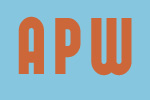Phil Havey
Remington
Fat Freddie gave us what we star-spangled wanted
The irascible Sioux, the plundering Comanche
And the naked Shoshoni caught in full flight;
He limned the buff and blue figures in Sibley tents
With their hot, toddy cups of steaming rum
And the trooper rowling his Tennessee stud.
Fat Freddie brought us back to the first day's cigarette
Amid buffalo robes and steaming sowback
While the horizon cleared itself of Montana mists.
Fat Freddie had a good touch for the badlands
Which he drew with the fake wonder of the penny dreadful.
Freddie's thick hand laid out Dodge and Cheyenne
With poles, corrals and Pawnee camps
Long after they had gone over to brickwork and derbies.
The cold streams of his blue soldiers snapped like banners
A crossed the locked surfaces of oils and chalks
Without ever a hint of weeviled tack or rotten bacon.
Fat Freddie opened our eyes to the lemon sift of prairie
And what purples shadows can cast upon the barrancas
Until ever newsboy and little seamstress in New York knew
How Wyoming's soil often was the color of cut salmon.
"Damn fine show!", said Teddy from just off the Rose Garden
Where only the butterflies were yellow and the bordering carnations
Never quite found the pink of the Cimarron.
"Fine show!", Teddy said, again, fingering the thick, gilded frames
He'd had thrown around Freddie's work like golden stockades
And nobody paused to question what he wrote above his name
On treaties going westward to where the lean Lakoda hung about
The forts like wisps of smoke caught in the folds of their blankets.
Wittgenstein
Within their neat laboratories of destruction,
The calculations had gotten our of hand.
Trenches became opposing firing squads
Beneath a constant dawn of tracer fire;
From both camps, the meridians were crossed
And recrossed
Through sieves of meticulously coiled wire
The way water flows down hill.
Poets died; thugs died and a more than the projected number
Of gentlemen fell among the ranks,
Sharing common graves of mud-shine and debris.
II
In time, he saw those for whom he carried the most
Borne up like star-rockets fired just above the lines.
Lofting as bright balls of luminescence,
Each held a momentary zenith
Before ghosting back in waffered ash.
Wherever he put out his hand he touched the resinous edges
Of green-wood crosses and the blind redundancy
Of rifles upbutted into freshly spaded earth.
Two brothers, a loved teacher and a dozen protégés
Simply stood up and left the room
As if some solemn task had been concluded.
Each, he later reflected, had paused
To motion him from the door, but he had not chosen to follow.
Getting To The Poet
If cross-street references trouble you,
Look at Smith’s Brooklyn Directory
For this year of 1855;
Avoid the Pug Uglies and the Dead Rabbits
When boarding the Fulton Ferry
With the throngs of derbied men,
Old ladies with gentle faces
And gumchewing shopgirls in pettifores
Making the crossing to Chinatown;
Then, take Myrtle Avenue horse car
Fresh out of the barn
To where Ryerson Street miters off Myrtle,
Close to a right angles cutting South;
Dismount;
Walk passed porches where mechanics sit;
Suspenders hanging from their hips
Like loose vines;
Continue on for the better of 180 feet
To the single story, brick building at 99.
If you arrive in the forenoon,
The poet can be found languishing in a bed
Amplified by bolsters, comforters
And two Star of Heaven quilts;
Delay until the meridian has passed
And George Whitman will explain the way
To the printshop cornered on Cranberry
Where the poet pulls his proofs each afternoon.
Just ask about Rome Brothers alone
And never about Walt’s "funny" book
Which his brother held, wet from the press,
And even fingered for a moment at the time
Nor should you further confuse the poet’s mother
Who once tested the volume’s full weight
As if its heft within her hand might say something
Of the irregular mind which never made a lick
Of sense after that day her boy laid his box
Of sound workman’s tools away.
Finding the poet is easy with directions right
And not like those they passed on to Emerson,
Whom Walt finally met in a De Kalb cafe.
An hour before his ferry left the pier,
In a time too short to talked down the dislike
Each
In his private journals after he had gone.
If all else fails
Or diurnal arrivals prove inconvenient,
Linger on any boulevard corner long enough
To sense the drift of the delicious boys
Who always know the way at once.
